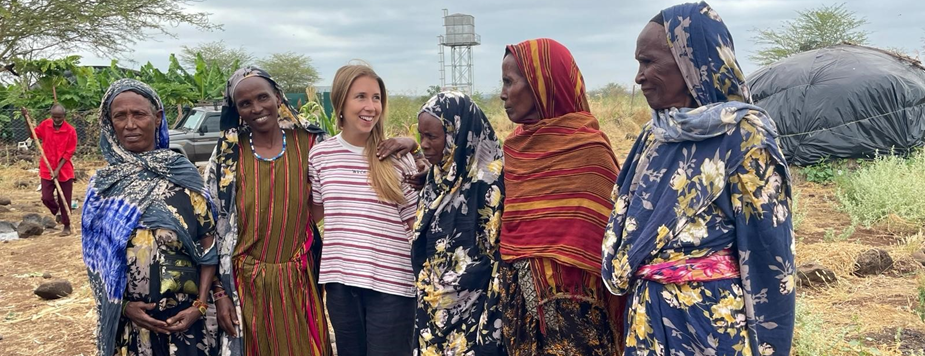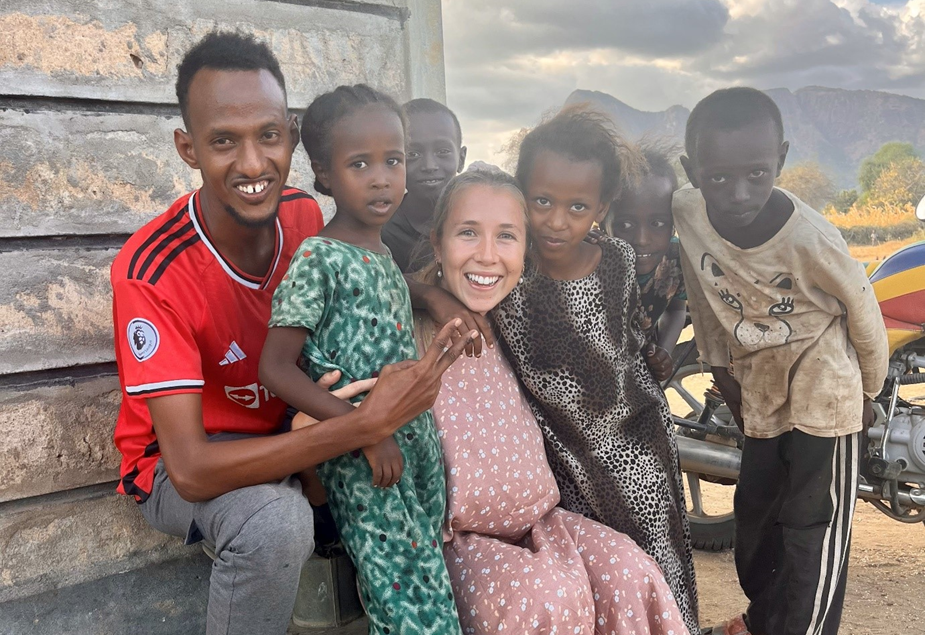Westpac Scholar Explores Gender and Resilience in Northern Kenya's Pastoralist Communities

In the heart of Northern Kenya, amidst the rugged landscapes of the Moyale region, lies a story of resilience, gender dynamics, and the fight against climate change. For Westpac Future Leader Scholar Rebekah Ash, this story was life-changing.
As part of her PhD studies tackling the complexities of climate resilience, Rebekah's recent research project, delved into the intricate ways pastoralist communities navigate these challenges, focusing particularly on the role of gender in shaping their resilience.
Livestock grazing systems are crucial for global food security, supporting millions while grappling with climate change. Yet, research often overlooks low and middle-income countries, especially in Africa. To bridge this gap, Rebekah partnered with the Centre for Research and Development in Drylands (CRDD) and conducted fieldwork across five villages in Moyale. Through interviews, focus group discussions, and policy workshops, they unearthed the resilience strategies of these communities and the pivotal role of women in sustaining them.
"The resilience of these communities is truly remarkable," Rebekah said. "Despite facing severe drought and conflict, their adaptive strategies and strong desire to maintain their pastoralist way of life shone through."
Rebekah’s research highlighted how women bear the brunt of the challenges, taking on multiple roles to keep their families and communities afloat. One poignant moment was shared by a local woman: "If there is war, men will fight or flee. Women first pick up their children, and then fight or flee." This sentiment underscores the critical, yet often underappreciated role women play in these communities.
Conducting fieldwork was both challenging and enlightening for Rebekah. Language barriers and cultural differences were bridged by the deep connections formed with community members who generously shared their stories. Living with the family of a local research assistant, she experienced firsthand the daily realities of these communities. Life involved bucket baths, squat toilets, and motorbike rides to remote villages. Despite these hardships, the warmth and hospitality of her host family and the broader community were unforgettable. They even gave her a Borana name, ‘Daki,’ making her feel like a part of their family.

"My understanding of international agricultural development has been profoundly shaped by these experiences," Rebekah shared. "It’s the personal stories and connections that drive my commitment to making a positive impact."
Agriculture is the dominant land use worldwide, with livestock systems crucial for food security and rural livelihoods. However, the sector must also navigate the complexities of climate change. This research contributes to a more nuanced understanding of livestock sustainability, particularly in the Horn of Africa, which recently endured one of its worst droughts.
Rebekah’s findings from this research are not just academic; they have practical implications. They emphasise the need for development policies to incorporate gender perspectives and support local resilience strategies. These insights are invaluable, particularly as Australia faces similar climate challenges.
“The stories of resilience from these pastoralist communities challenge the narrative pushed by many development programs that advocate for a shift away from pastoralism,” Rebekah says. “Instead, the research highlights the importance of empowering local knowledge systems that have long adapted to variable conditions”.
One of the most significant takeaways is the clear recognition of climate change's impact on traditional patterns and the communities' adaptive responses.
“Despite the severe challenges, there is a strong desire among these communities to continue their pastoralist way of life, and the need for development agencies to support rather than transform these livelihoods,” Rebekah said.
The misalignment between aid efforts and community needs emerged as a critical issue. Aid often arrives too late or is misdirected, creating dependency rather than fostering resilience. "If only they held our hands while we still had strength," one woman lamented, highlighting the need for timely and appropriate support.
This research has strengthened international collaborations, benefiting both the Horn of Africa and Australia. As Australia faces increasing climate variability, the lessons learned from these resilient communities are invaluable.
Rebekah, who travelled through developing countries as a child with her father, developed a deep interest in food security, rural communities, and sustainability from a young age. On a personal level, the experience was transformative for her, deepening her commitment to international agricultural development and inspiring her to leverage her newfound networks to drive positive change in the region.
“My journey was more than just research. It was about human connection, understanding, empathy, and the drive to make a difference,” Rebekah said. “The incredible stories, memories, and lessons I’ve taken from Moyale will continue to guide and inspire my work championing positive change in agricultural sustainability.”
Rebekah's trip and fieldwork was made possible by the Westpac Future Leaders Scholarship and the Crawford Fund.
Rebekah Ash is a 2023 Westpac Future Leaders Scholar. Read more about her work here.
Inspired to become a Future Leader to drive positive change just like Rebekah? Applications for 2025 Future Leaders Scholarships are open until 29 August 2024.
Published 19 July 2024


